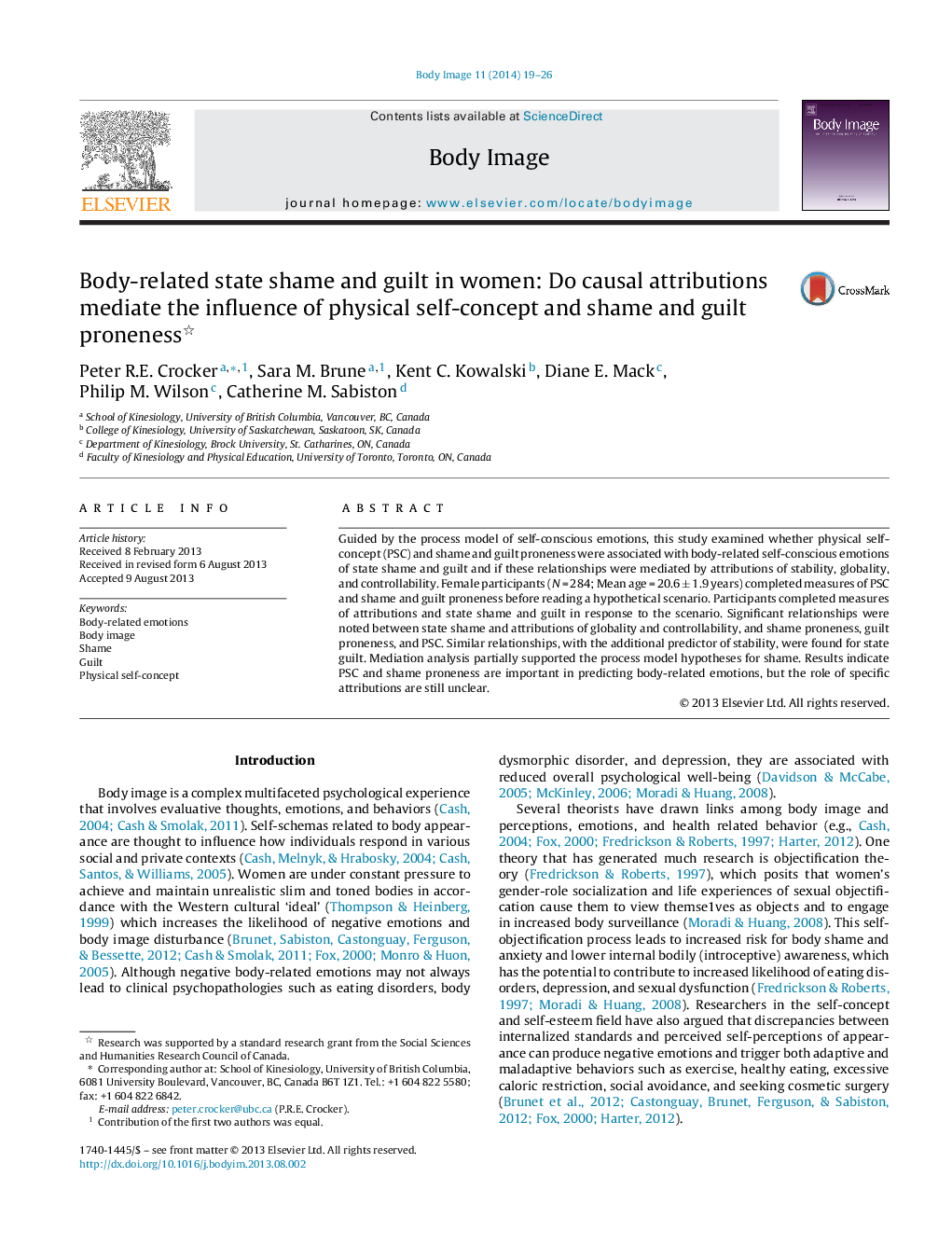| Article ID | Journal | Published Year | Pages | File Type |
|---|---|---|---|---|
| 902852 | Body Image | 2014 | 8 Pages |
•Examined predictors of body related state shame and guilt in women.•Higher shame proneness related to higher state shame and guilt.•Lower physical self-concept related to higher body shame and guilt.•High global and low control attributions related to higher state shame and guilt.•Evidence that global and control attributions mediated effects on shame and guilt.
Guided by the process model of self-conscious emotions, this study examined whether physical self-concept (PSC) and shame and guilt proneness were associated with body-related self-conscious emotions of state shame and guilt and if these relationships were mediated by attributions of stability, globality, and controllability. Female participants (N = 284; Mean age = 20.6 ± 1.9 years) completed measures of PSC and shame and guilt proneness before reading a hypothetical scenario. Participants completed measures of attributions and state shame and guilt in response to the scenario. Significant relationships were noted between state shame and attributions of globality and controllability, and shame proneness, guilt proneness, and PSC. Similar relationships, with the additional predictor of stability, were found for state guilt. Mediation analysis partially supported the process model hypotheses for shame. Results indicate PSC and shame proneness are important in predicting body-related emotions, but the role of specific attributions are still unclear.
